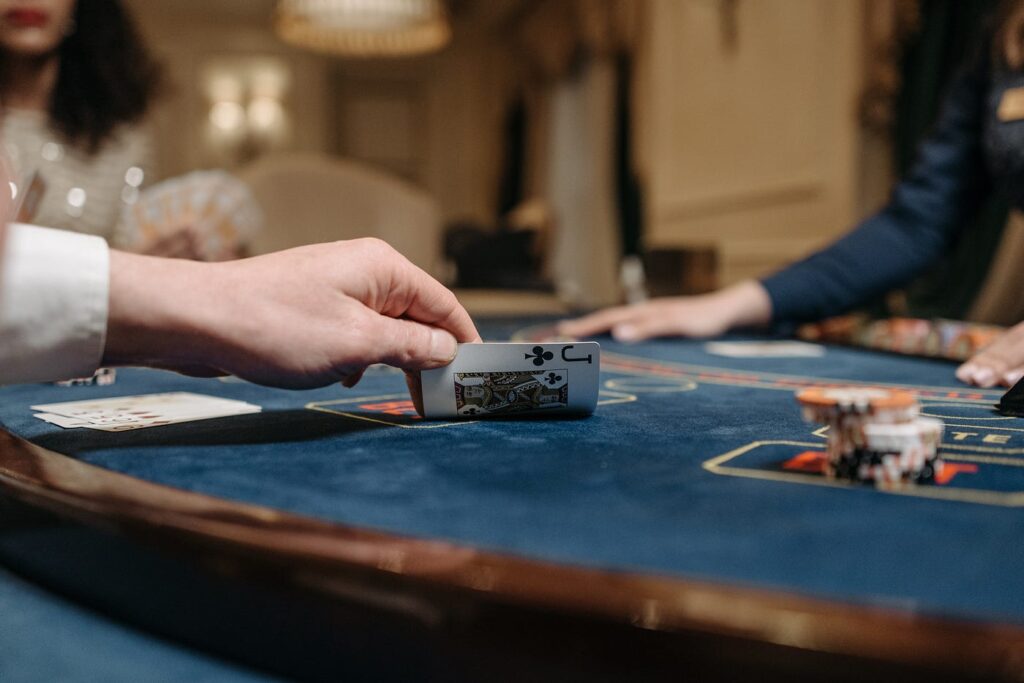Gambling has been a part of human culture for centuries, spanning various civilizations and evolving with time. The allure of gambling is complex and multifaceted, drawing individuals from all walks of life into its embrace. This exploration delves into the intricate psychology behind why people are often drawn to gambling, examining the various factors that contribute to the appeal of this age-old activity.
- Thrill and Excitement:
One of the primary reasons people engage in gambling is the thrill and excitement associated with it. The prospect of winning, combined with the adrenaline rush experienced during the anticipation of results, creates a unique form of entertainment. Whether it’s the roll of the dice, the spin of a wheel, or the draw of cards, the unpredictable nature of gambling captures the imagination and provides a sense of excitement that is hard to replicate in other activities.
- Risk and Reward:
The fundamental concept of risk and reward is deeply ingrained in the human psyche. Gambling provides a platform where individuals can willingly take risks in the hope of securing a reward. The potential for a substantial financial gain acts as a powerful motivator, prompting people to engage in activities like casino games, sports betting, and lotteries. The allure of turning a modest investment into a significant reward is a key factor in the widespread appeal of gambling.
- Social Interaction:
Gambling often serves as a social activity, fostering interaction and shared experiences among individuals. Casinos, bingo halls, and sports betting venues become social spaces where people gather, enjoy each other’s company, and collectively partake in the excitement of the games. The communal aspect of gambling enhances the overall experience, making it a popular choice for those seeking social engagement and recreational pastimes.
- Entertainment Value:
Beyond the potential for financial gain, gambling is embraced for its entertainment value. The immersive environments of casinos, the strategic elements of certain games, and the visual and auditory stimuli associated with slot machines contribute to an overall entertaining experience. People are drawn to the idea of being entertained while simultaneously having the chance to win, making gambling an appealing form of leisure.
- Escape from Reality:
The concept of escapism plays a significant role in why individuals indulge in gambling. The immersive nature of casino environments, coupled with the unpredictability of outcomes, provides a temporary escape from the routine of daily life. Whether it’s the flashing lights of slot machines or the intensity of a poker game, the allure of entering a different world, even if only for a short time, attracts those seeking a break from the ordinary.
- Psychological Factors:
Several psychological factors contribute to the allure of gambling. The phenomenon of “near misses,” where individuals come close to winning, activates reward centers in the brain and reinforces continued engagement. The intermittent reinforcement provided by occasional wins creates a sense of unpredictability, making the activity more enticing. The psychological aspect of gambling is a complex interplay of cognitive processes that contribute to its addictive nature for some individuals.
- Cultural and Societal Influence:
The cultural and societal context in which an individual lives can significantly impact their likelihood of engaging in gambling. In societies where gambling is deeply ingrained and socially accepted, individuals may view it as a normal and recreational activity. Cultural influences, such as the portrayal of gambling in media and its prevalence in social circles, can contribute to shaping attitudes and behaviors related to this activity
- Desire for Control:
Gambling provides a sense of control for some individuals in situations where uncertainty prevails. The ability to make choices, even in a game of chance, can provide a perceived sense of control over one’s destiny. This desire for control, coupled with the potential for financial gain, makes gambling an attractive option for those seeking to exert influence over unpredictable outcomes.
Conclusion:
The allure of gambling is a complex tapestry woven from a variety of psychological, social, and cultural threads. Understanding why people are drawn to gambling involves recognizing the multifaceted nature of this phenomenon. While many individuals engage in gambling responsibly for entertainment and social interaction, it is crucial to acknowledge the potential risks associated with excessive or problematic gambling behavior. Judi Bola is the best place if you want to explore best gambling experience. As society continues to evolve, the study of the psychology behind gambling remains a dynamic field, shedding light on the intricate interplay of factors that make this age-old activity a fascinating and enduring aspect of human behavior.



